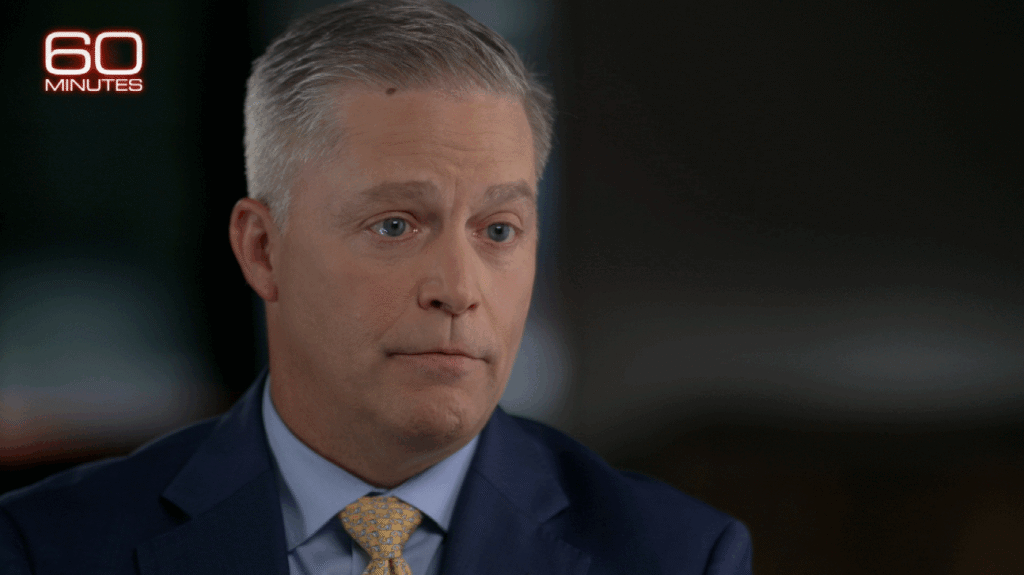CBS’s 60 Minutes returns on Sunday, October 12, 2025, with a hard-hitting segment titled The China Hack, delving into the escalating cyber threat posed by China’s state-sponsored operations against critical American infrastructure. Correspondent Scott Pelley led the report, featuring an exclusive interview with retired General Tim Haugh, the former head of the National Security Agency (NSA) and U.S. Cyber Command. This segment combined investigative reporting, expert insight, and detailed analysis, offering viewers a rare look into the challenges facing national security in the digital age.
It underscores the increasing importance of cybersecurity as not just a technical issue but a matter of national defense. Through clear explanations and firsthand accounts, the report illuminated how cyber operations can threaten everything from power grids to financial systems, and why the U.S. must remain vigilant.
- 60 Minutes Reports on “The China Hack”, “Booms, Busts and Bubbles” & “The Road to Damascus” October 12 2025
- Booms, Busts and Bubbles: 60 Minutes Explores the Risks in Today’s Financial Markets
- The Road to Damascus: 60 Minutes Interviews Syria’s New President
Understanding the Threat Landscape
The China Hack begins by contextualizing the nature of modern cyber warfare. China’s cyber campaigns are highly sophisticated, targeting both government networks and private sector systems critical to national security. Pelley and his team illustrated the scope of these attacks, highlighting how malware and intrusions can compromise electricity grids, water systems, transportation networks, and communication channels.
The segment explains that these threats are not hypothetical. Past cyber incidents, such as attacks on American defense contractors and healthcare infrastructure, show that state-sponsored hackers are capable of causing disruption at unprecedented levels. Pelley emphasizes that understanding the tactics, techniques, and procedures used by Chinese cyber actors is essential for creating effective defensive strategies. The reporting frames the threat in terms that viewers can grasp, connecting abstract technical risks to real-world consequences.
Exclusive Insights from General Tim Haugh
A central highlight of the segment is Scott Pelley’s interview with General Tim Haugh, who provides a rare insider perspective on America’s cybersecurity challenges. As former head of the NSA and U.S. Cyber Command, Haugh played a leading role in defending the nation against digital attacks. In the interview, he discusses the methods employed by Chinese hackers, the sectors most at risk, and the challenges of responding to threats that cross international borders.
Haugh’s insights reveal the strategic thinking behind U.S. cyber defenses, explaining how intelligence gathering, offensive capabilities, and interagency coordination work together to mitigate risks. He also addresses the evolving nature of cyber warfare, emphasizing that the pace of technological change outstrips traditional defense mechanisms. Pelley’s questioning draws out not only the technical aspects but also the broader policy and security implications, showing that cybersecurity is as much a matter of strategy and diplomacy as it is of technology.
The Stakes for American Infrastructure
The segment provides an in-depth look at why America’s critical infrastructure is particularly vulnerable to cyber attacks. Electrical grids, water treatment plants, financial networks, and telecommunications systems are interconnected and heavily reliant on digital control systems. A successful attack on any of these sectors could cause cascading failures, affecting millions of citizens and threatening national security.
Pelley and the production team highlight real-world examples of past breaches, showing how even minor compromises can escalate into significant threats. The reporting also explores the economic and social impact of potential cyber attacks, making clear that the consequences extend beyond government agencies to every American household. This approach underscores the urgency of proactive defense measures and the importance of public-private collaboration in protecting the nation.
Preparing for the Future of Cybersecurity
The China Hack concludes by considering the future of cybersecurity and the measures being implemented to counter state-sponsored threats. Haugh discusses initiatives designed to strengthen digital infrastructure, including advanced monitoring systems, threat intelligence sharing, and the development of resilient networks. He stresses the importance of investing in cybersecurity talent and technology to keep pace with rapidly evolving threats.
The segment also raises broader questions about international norms and deterrence. How can the U.S. prevent cyber aggression without escalating into conflict? What role do allies and multinational organizations play in creating a coordinated response? Through analysis and expert commentary, the segment leaves viewers with a clear understanding that cybersecurity is a multifaceted challenge—one that requires vigilance, innovation, and strategic foresight.
More 60 Minutes October 12 2025
- 60 Minutes Reports on “The China Hack”, “Booms, Busts and Bubbles” & “The Road to Damascus” October 12 2025
- The China Hack: 60 Minutes Explores America’s Growing Cybersecurity Threat
- Booms, Busts and Bubbles: 60 Minutes Explores the Risks in Today’s Financial Markets
- The Road to Damascus: 60 Minutes Interviews Syria’s New President
More Feature Articles
- “The Prince, The Whiz Kid & The Millionaire”: Dateline Reports on Clifford Lambert Homicide October 10 2025
- “Life on the Line”: 20/20 Reports on Denise Amber Lee Case October 10 2025
- “A Death in the Stairwell”: 48 Hours Investigates the Alison Davis Case October 11 2025
- 60 Minutes Reports on “The China Hack”, “Booms, Busts and Bubbles” & “The Road to Damascus” October 12 2025

